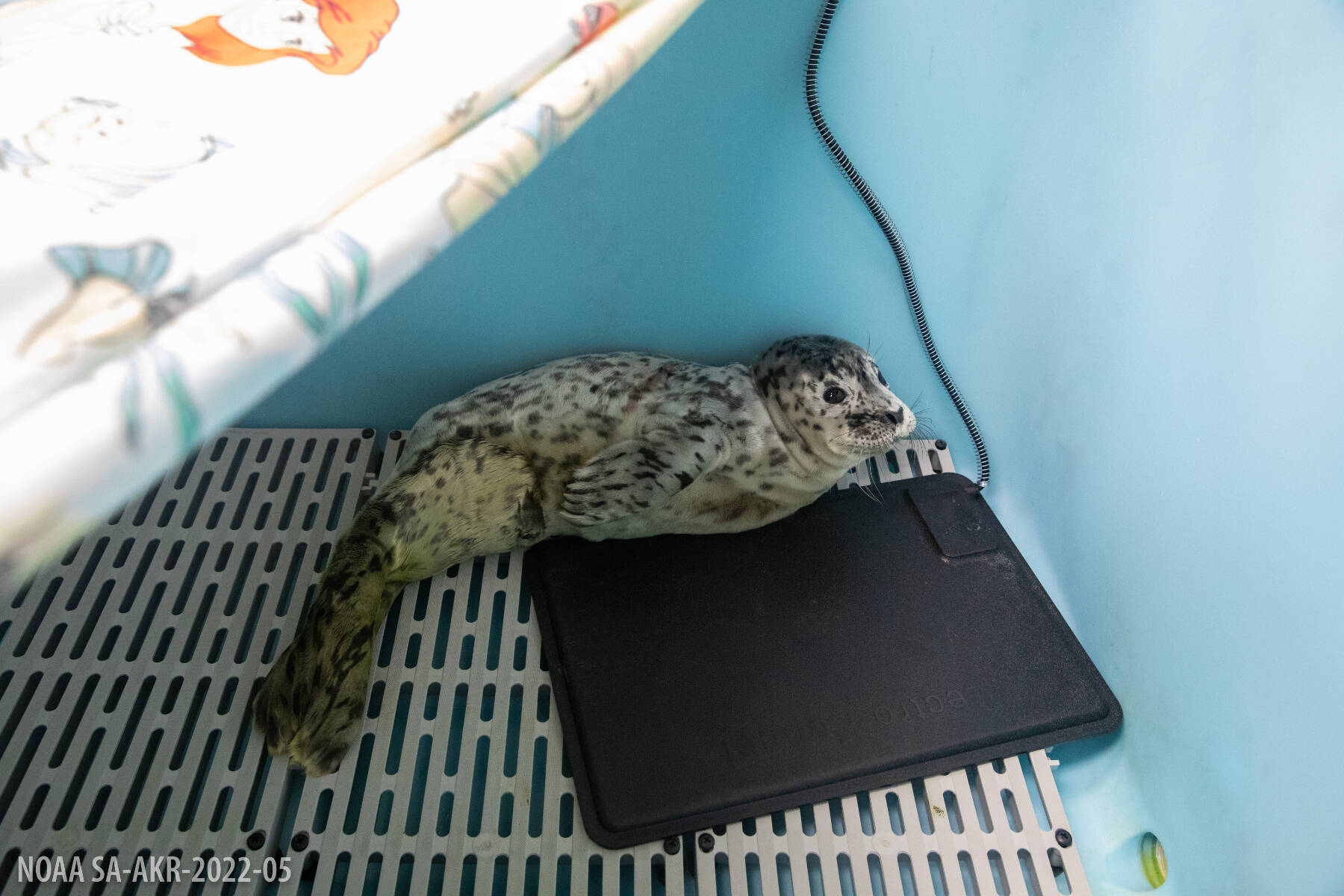Three harbor seal pups were recently admitted to the Alaska SeaLife Center’s Wildlife Response Program, including a female pup found on a Homer beach, according to a June 4 release from the center.
One of the pups — found alone on a beach in Petersburg on May 26 — was a male born prematurely. According to the center, he shows indications that his liver isn’t functioning and remains in critical condition.
On May 31, a female harbor seal pup was found, emaciated, on a beach in Homer. She was described in the press release as very skinny and dehydrated and had a fresh umbilicus, indicating she was newly born. Once recovery was authorized by National Oceanic and Atmospheric Administration, volunteers were able to recover and start her transportation to the SeaLife Center for critical veterinary care. This pup’s bloodwork also pointed to liver dysfunction, but the primary concern for the animal care team is her severely malnourished and dehydrated state. She also remains in critical condition.
A female harbor seal pup was rescued June 3 after it was found alone, likely due to maternal separation, in an unusual location in Anchorage. The pup is undergoing treatment and rehabilitation, the center said.
The recent rescues come after the discovery and recovery of a premature harbor seal pup and an orphaned northern sea otter pup earlier this spring, both of which have required intensive rehabilitation and veterinary care.
The release from June 4 notes that one of the most significant threats to harbor seal pups during pupping season is human disturbance. If a pup is approached by a human or dog, the mother may abandon it. Once abandoned, a pup’s chances of survival drop dramatically.
If you find a seal pup in distress, do not approach, touch or attempt to move it. Approaching or disturbing a marine mammal can cause serious harm to the animal, put people at risk, and may result in violations of the Marine Mammal Protection.
The Alaska SeaLife Center remains ready to respond to reports of stranded and injured marine mammals statewide. You can call the 24-hour Stranded Marine Animal Hotline at 1-888-774-SEAL (7325). They encourage calling before approaching any stranded or injured wildlife.

